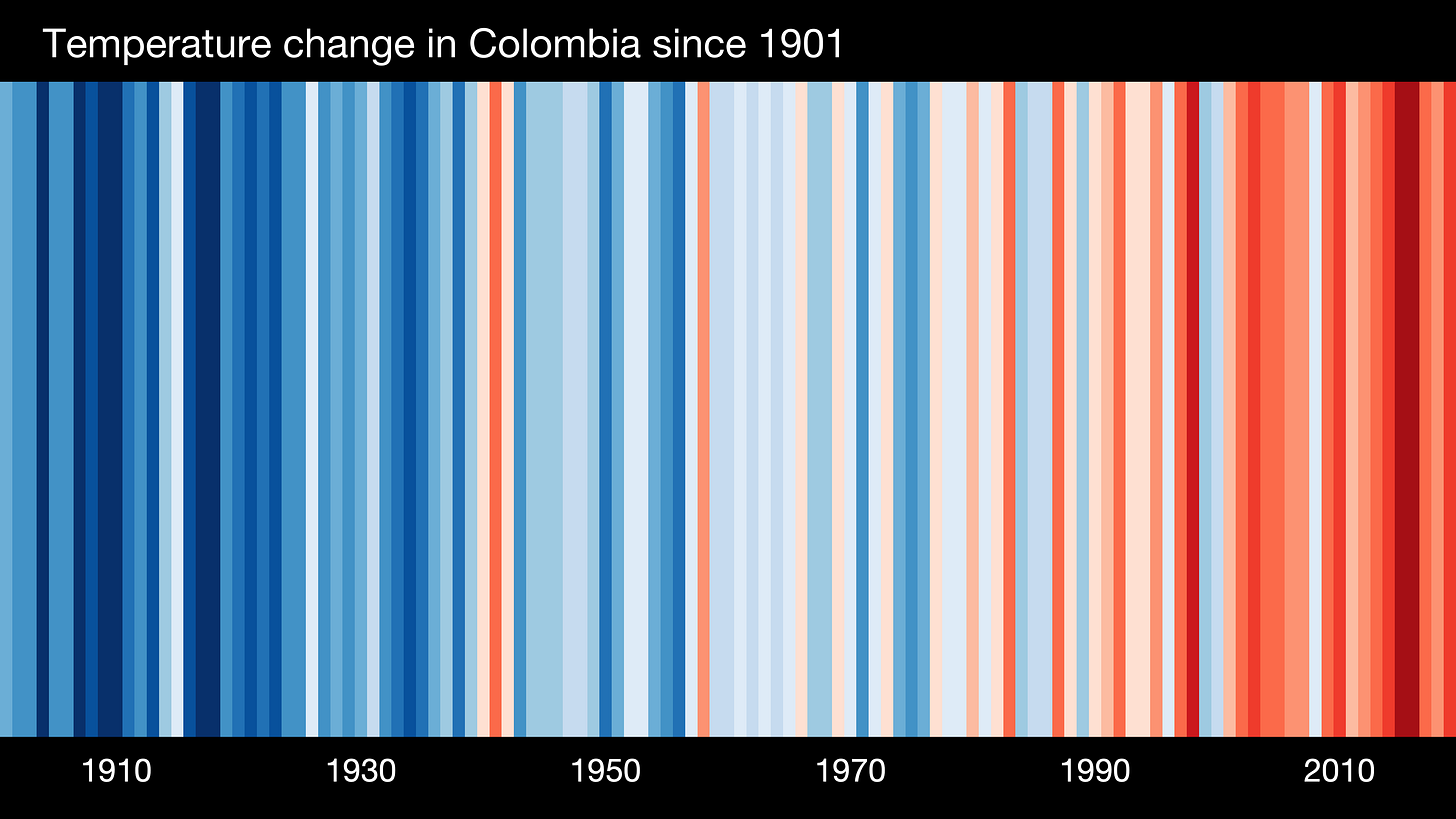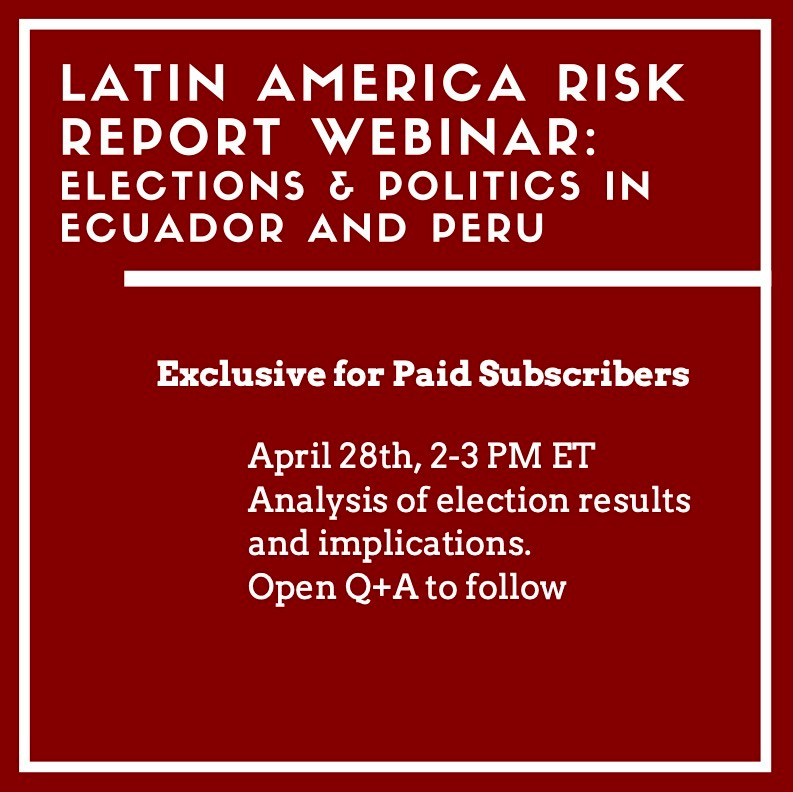The risk of inaction on the environment
Five years from today, climate change and other environmental issues in Latin America will be more important than they are right now.
Source: Show Your Stripes
Five years from today, climate change and other environmental issues in Latin America will be more important than they are right now.
That perspective is important to anyone monitoring risks in Latin America. Much of the debate about today’s climate change summit relates to today’s politics. Will Biden reach an agreement with Bolsonaro about Amazon deforestation? What is the US response to AMLO’s Central America tree planting proposal, something Mexico’s president is tying directly to the ongoing migration/refugee crisis? These are questions that have potential long term impacts, but the discussions are firmly rooted in the politics as they are in April 2021.
If this is only about the politics of now, governments and businesses can dodge this issue for another few years. They can fail to reach agreements or reach weak agreements and pay little short term costs for those failures.
However, five years from now, failures today will matter much more. Politicians who pushed back against environmental issues in 2021 are going to experience long term reputation and legacy damage. Businesses that lobby against climate agreements are far more likely to face real costs from both government actions and angry investors. Those are just the political and business risks. Inaction also does damage to the economy and the risks to the environment are obviously damaging in themselves.
As numerous other authors have detailed, there are also opportunities. The region has opportunities to jump generations of technology in terms of renewable energy and electrification of transportation. Lithium and copper mining are critical to global goals around batteries and electric vehicle manufacturing and need to be done correctly to protect local environments, even as they contribute to the global goals. Defending and rebuilding ecosystems including the Amazon and ocean fisheries are goals that will likely bring deserved payments from investors as well as environmental benefits. Guy Edwards and Benjamin Gedan discuss more opportunities in a recent op-ed.
The politics of environmentalism in Latin America don’t play out along the same lines as they often do in the United States.
Many rightwing politicians in Latin America including Presidents Ivan Duque and Sebastian Piñera understand the threat of climate change and have taken positions to cut greenhouse gasses and prepare to adapt to the impact of rising temperatures and sea levels. There is plenty to debate and criticize, but they represent an honest attempt at a pro-market approach to the problem that stands in stark contrast to the denialism that exists among the political right in the United States and Brazil. It is a place for the Biden administration to find potential cooperation with those leaders.
On the other side, as I commented on after Ecuador's first round, there is a critical divide in the left with a number of influential anti-environmental politicians including Andres Manuel Lopez Obrador, Rafael Correa and Nicolas Maduro competing against a younger generation of much more environmentally conscious leftists. (A similar point was made by Oliver Stuenkel here)
Those divisions may or may not be seen at the summit today. However, I have little doubt that the younger generation who care more about climate change are going to be more influential in the coming decade.
Thanks for reading
Jordana’s newsletter and AS/COA have more links related to today’s summit.
I have a webinar coming up next Wednesday for paying subscribers. If you are a paying subscriber and haven’t gotten the invite, please email me and I’ll get you signed up. If you’re not a paying subscriber and want to support the newsletter please subscriber for $9 per month.




